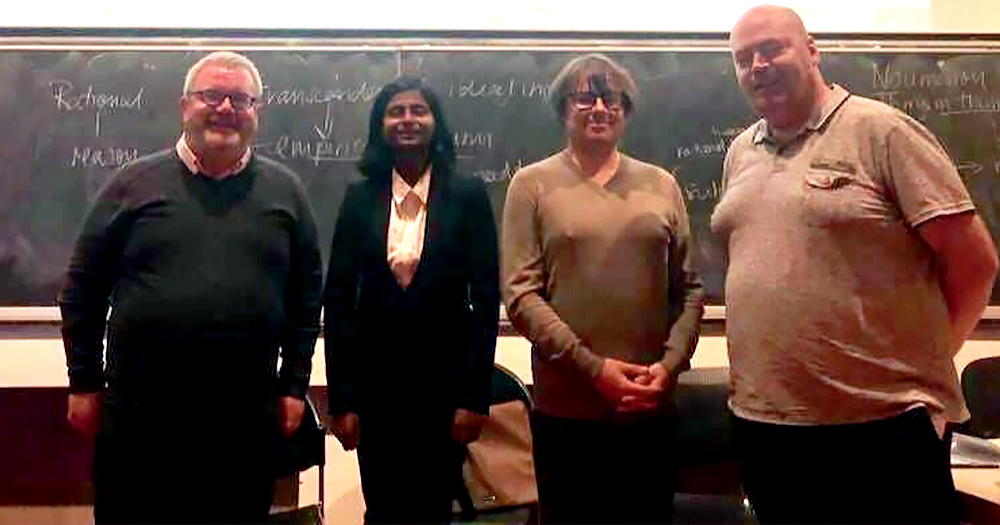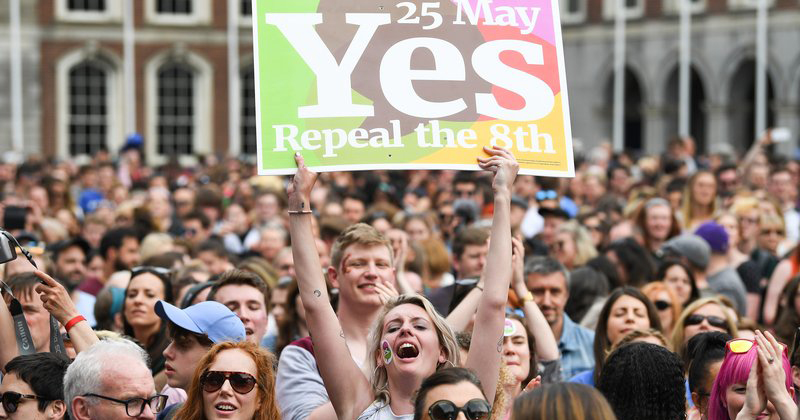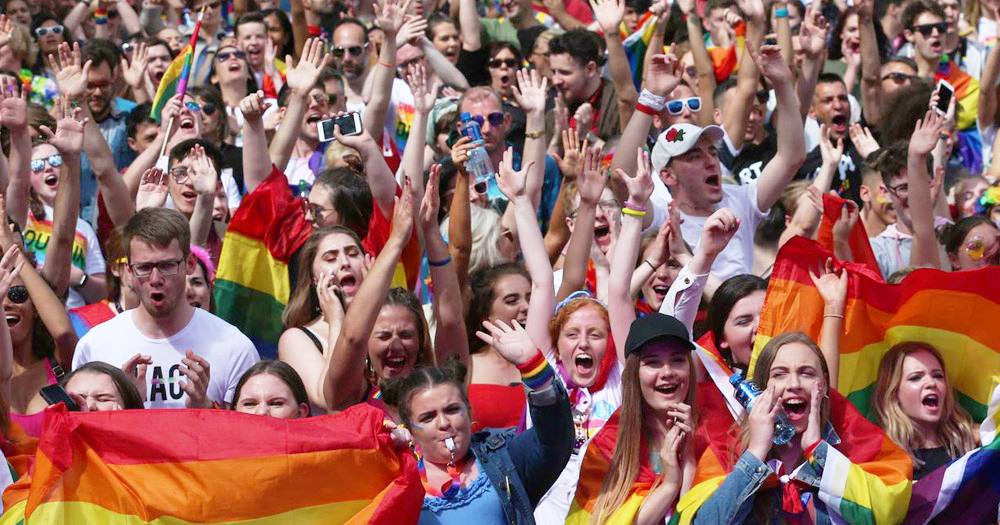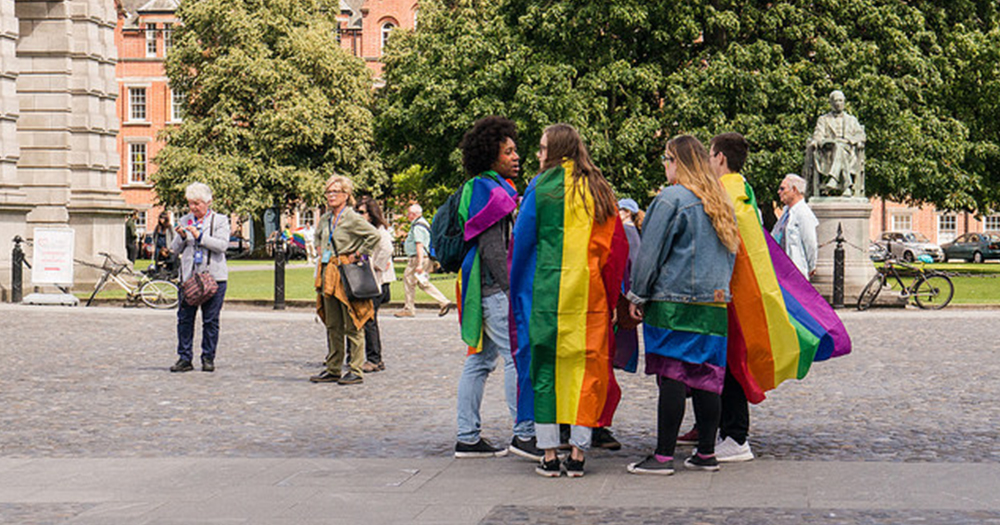Trinity College Dublin (TCD) was the venue for a recent wide-ranging discussion on the future of LGBT+ advocacy in Ireland, jointly hosted by the University’s Politics and Q-Soc Societies. I was delighted to speak on behalf of the National LGBT Federation (NXF), publishers of GCN and who have been campaigning for LGBT+ equality in Ireland since 1979. I was joined on the panel by Dr Fergus Ryan of Maynooth University, Cllr Francis Timmons of South Dublin County Council and Shubhangi Karmakar from TCD graduate student’s union.

TCD was certainly an appropriate setting for our discussion as it has been long associated with many leading lights in our equality movement: Former Presidents and key LGBT+ allies Mary Robinson and Mary McAleese were both based in TCD at one time, while Senators David Norris and Ivana Bacik currently represent the university in the Seanad from where they advocate for progressive change on LGBT+ and other important social issues.

From early into the discussion, it was clear that the same passion that drove support among our community for marriage equality, gender recognition and Repeal of the 8th Amendment continues to burn brightly, with the appetite for further change and reform as strong as ever. Indeed, this reflects the findings of Burning Issues 2 – a comprehensive body of research conducted by the NXF into the views and priorities of the LGBT+ community post-2015.
A number of key themes emerged over the course of the debate. One topic that panellists kept returning to was the clear and urgent need for LGBT+ inclusive Hate Crime legislation. Ireland is very much an outlier in the western world in failing to legislate in this area. It is certainly not the case that such a law is unnecessary. For example, a recent report launched by the Irish Council For Civil Liberties (ICCL) called ‘Life Cycle of a Hate Crime’ revealed that Ireland has the second highest rate of Transphobic hate crime in the European Union. Such a disturbing finding is consistent with other European wide studies where Ireland again fares poorly in this regard. And while Irish society has made significant progress in recent years regarding legal equality for LGBT citizens, we are not quite yet a liberal utopia.
I explained to those present that securing the enactment of comprehensive Hate Crime legislation is a major priority for the National LGBT Federation, as indeed it is for our broader community, and we will continue to campaign and lobby on the issue until Ireland is brought into line with comparable countries and effective legal redress exists for victims of homophobic and transphobic crime, redress that is currently lacking. Meanwhile, Cllr Timmons offered a very personal testimony of being a victim of Hate Crime and how the current legal regime is failing the LGBT+ community. We require both legislation and a proactive approach from the State.

Another topic to emerge as a significant issue was the future of Pride. Panellists and audience members were united in the belief that the Parade should go through the heart of Dublin city-centre, befitting the country’s largest celebration of equality and diversity. The march has been re-routed to side streets for a number of years, with the now completed Luas works initially cited as the reason. The spectre of the recent papal visit being accommodated through the city-centre and which received lavish funding (despite public interest being vastly overstated) was also a bone-of-contention among those present and further fuelled calls for PRIDE to be returned to the heart of the city and to receive appropriate funding and support from local and national government. As Panti Bliss recently stated, the whole point of our PRIDE movement is visibility.
A petition currently being circulated calling for the route to be restored can be signed here.
Separation of church & state and in particular education equality was seen as the next great social reform following the success of marriage equality and the Repeal campaign. As I and other panellists outlined, LGBT+ students and families will continue to be significantly disadvantaged as long as the State outsources the running of most of our publicly funded education system to a religious organisation that continues to employ quite shameful and stigmatising language against our innate identities – an ‘empire of misogyny and homophobia’ as Mary McAleese described it.

Audience and panellists alike were similarly concerned about the ‘ethos opt-out’ provided to school patrons (overwhelmingly religious) in the area of sex education. The position of the National LGBT Federation is unequivocal in this regard – All state-funded schools should be required to teach an RSE (Relationships & Sexuality Education) program that is fully LGBT+ inclusive and based on objective facts, not religious dogma. In the longer term, we need to ensure that our schools and indeed our hospitals are fully secular and where equality for all is the ‘ethos’.
The need for a statutory prohibition on the abusive and discredited practice known as so-called ‘gay conversion therapy’, labelled a form of torture by the United Nations, was also highlighted during the discussion, as was the plight of LGBT+ asylum seekers in Direct Provision Centres, who are subjected to homophobic/transphobic behaviour from those intolerant of LGBT+ identities. In that respect, the National LGBT Federation has forwarded a submission to the Department of Justice & Equality regarding their Draft National Standards for the running of Direct Provision Centres. In our submission, we call for Trans residents to be housed fully in accordance with their gender identity. We also call for mandatory LGBT+ awareness training at regular intervals and for Integration Action Plans to highlight LGBT+ equality and the unacceptability of homophobic/transphobic prejudice in Irish society.
In truth, the discussion could have continued for many more hours and it is clear our LGBT+ community remains as committed and engaged as ever. We in the National LGBT Federation certainly look forward to working with our friends and allies in continuing to advocate for the full emancipation of LGBT+ people in all spheres of society.
Finally, a thank you to both Q-Soc and Trinity Politics Society for hosting such an interesting and informative event.
© 2018 GCN (Gay Community News). All rights reserved.
Support GCN
GCN is a free, vital resource for Ireland’s LGBTQ+ community since 1988.
GCN is a trading name of National LGBT Federation CLG, a registered charity - Charity Number: 20034580.
GCN relies on the generous support of the community and allies to sustain the crucial work that we do. Producing GCN is costly, and, in an industry which has been hugely impacted by rising costs, we need your support to help sustain and grow this vital resource.
Supporting GCN for as little as €1.99 per month will help us continue our work as Ireland’s free, independent LGBTQ+ media.

